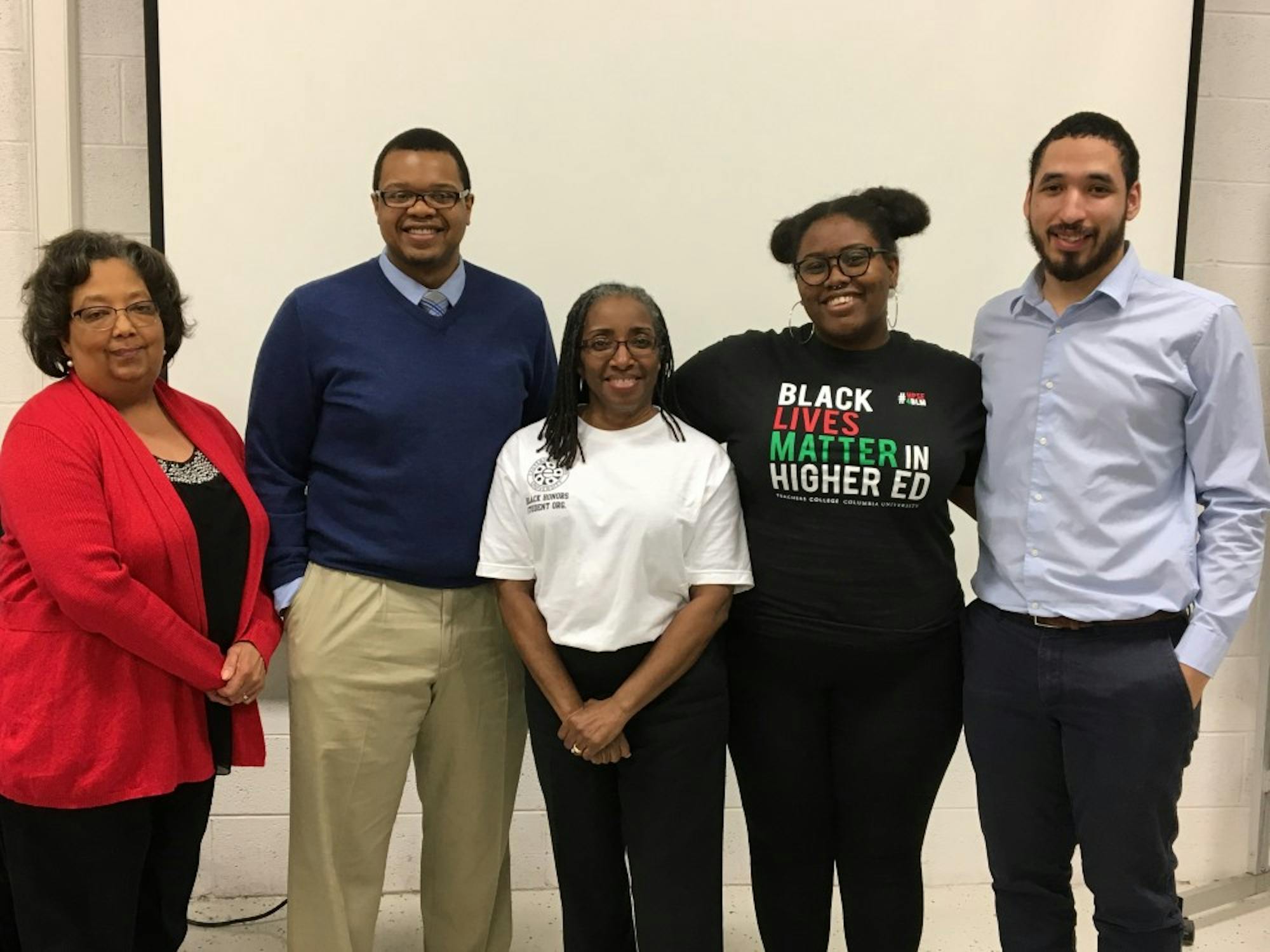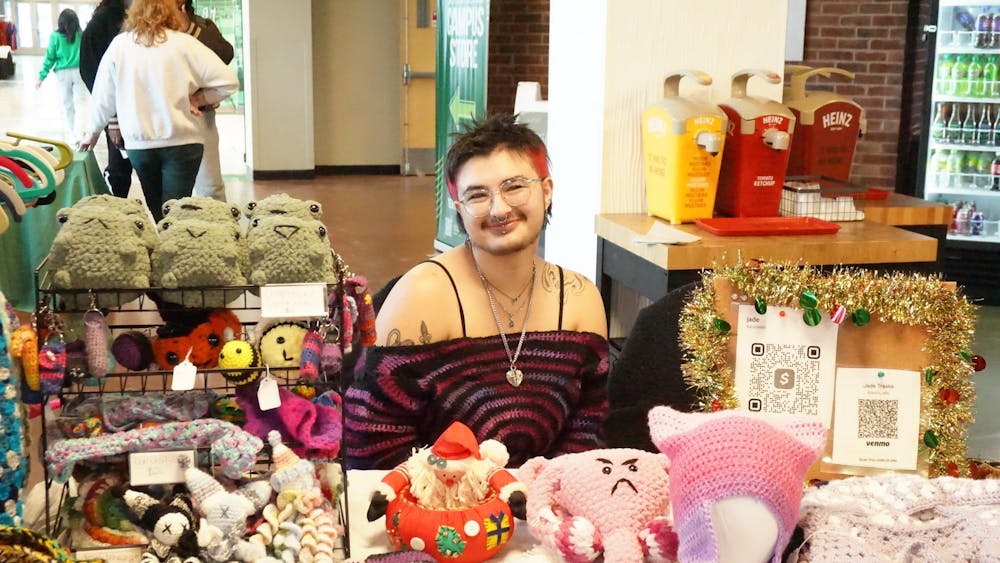The Honors College held “Our Untold Stories,” a panel discussion, Thursday, March 9, in Eastern Michigan University’s Sill Hall, co-hosted by the Black Student Honors Organization.
Honors College faculty fellow, Dr. Toni Stokes Jones, introduced panelists: Dr. Deborah Harmon; Dar Mayweather, coordinator for the Center for Multicultural Affairs; Victoria Walters, Best hall graduate director and David Hendricks; Sellers hall graduate director – some of Eastern Michigan University’s highly acclaimed African-American role models. The panel’s purpose was to share their experiences as African-American scholars in a racially divided society and on the campus of Eastern Michigan University.
The majority of the discussion was a panelist Q&A about their opinions and experiences on racial conflict, their proudest moments as people-of-color and personal experiences on EMU’s campus.
Dr. Harmon is the developer of the Minority Achievement Retention and Success (MARS) program in EMU’s College of Education, which aims to improve and retain cultural diversity in students and teachers education.
“My experience through K-12 was desegregating white schools. As I look at the experiences I had during that time era, I have to say I did not think we’d be in this place again,” Dr. Harmon said in response to current racial conflict.
“I’m not seeing too much difference at this time,” she said.
She compared how the modern day political climate is just as distressing and heartbreaking as it was when she was growing up.
EMU doctoral fellow and entrepreneur, Mayweather has his own thoughts on how racial conflict has changed.
“Racism has become more mobilized secretly,” Mayweather said. “We have KKK members who are a part of our police forces or a part of congress or legislation making decisions in the direction of keeping whiteness as the normality.”
He adds that it’s systematic oppression that we must battle and some of his witnessing of that oppression.
“Part of it is using our voices and being able to not be silenced,” Hendricks said. “I remember the first time I participated in a march and it was during my freshman year of college and it was ‘Justice for Trayvon.’”
Walters also expressed her feelings on how racial conflict is not explicitly said. She touched on how the media exposes us to so much more, allowing us to see the worldwide racism and white supremacy.
“People aren’t being silenced in the same ways as they were before. So people are being much more vocal about the oppression we’re facing,” Walters said.
“When I first saw the ‘Black Lives Matter’ hashtag, I think it has fundamentally changed the way we talk about race,” she said.
In a racially divided society, all four panelists continue to strive and reveal their proudest moments as people-of-color.
Harmon’s proudest moment was during her five-day training for other teachers -- where she saw the same white math teacher that mistreated her in junior high school -- attending her training. Harmon said she couldn’t get herself to talk to that teacher about the impact she had on her life.
“When I picked up her last assessment, she wrote, ‘I wish I would’ve had this training sooner. If I had, I probably would’ve been a mathematician,” said Harmon
Hendricks said that he is proud to be the first of his family to graduate, next to his sister who died before she could do so. He explained that what he is doing is for himself, his family and his sister.
Eastern Michigan University’s campus has its own challenges when it comes to race and politics.
“It is ethically challenging to be working there every day,” said Mayweather on being coordinator for Multicultural Affairs of EMU.
Although Mayweather is highly respected, he said he still faces barriers because of the color of his skin. Walters shared one of her experiences on EMU as well, explaining the unpacking of her identity.
“I’m in a school that’s 30 percent of color, why am I still ‘the black girl?’” she said.
Walters found it interesting how she felt out of place even though there were other black girls in the same classes as her.
After the racial graffiti incident in the fall 2016 semester and the political climate, the panelists emphasized the amount of hatred and bigotry they experience, making their stories valuable and relevant to modern day society.










